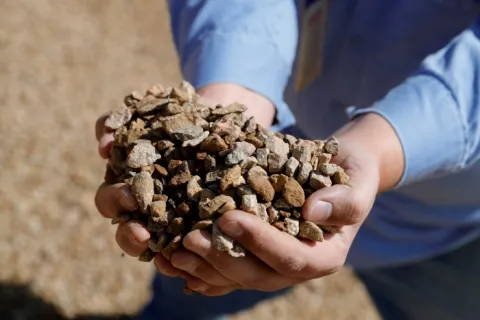The tactical sound protection headset market is projected to reach $3.8 Billion by 2027
Following the success of Hezbollah and the Houthis in using Iranian technology and conducting a successful war of attrition, ISIS is likely to adopt new tactics that could exacerbate the threat to Israel and the entire West
News
The Egyptian Air Force is considering the possibility of replacing its American fighter jets with Chinese J-10C and J-31 models as part of the Air Force's modernization effort
The defense giant will display a comprehensive suite of aerial systems designed to meet the needs of the rapidly evolving battlefield
Cyber
“While we are flattered by offers we have received, we have chosen to continue on our path to building Wiz,” said CEO and Co-Founder, Assaf Rappaport
Israeli citizens were recruited via social media for espionage activities, paid in cryptocurrency by Iranian agents
Latest articles
The newly formed 2nd Battalion of the Military Police will support the National Police with advanced weaponry and tactical operations in the Northern Region
“Dror has the experience, ability and skills required to lead ELTA into its next chapter and to hit its objectives with an emphasis on the current war,” said IAI’s Chairman
Even after the Israeli attack on Saturday against targets in Yemen, it is to be assumed that the Houthis will continue to act against Israel with increased intensity and will not lay down their swords
In recent weeks, many arrests of Hamas cell operatives in higher education institutions in the West Bank have been carried out
The system will provide advanced protection against aircraft, helicopters, and drones, and will offer Czechia modern air defense capabilities
“The fire currently burning in Hudaydah is seen across the Middle East and the significance is clear,” said Israel’s Minister of Defense, Yoav Gallant. This morning: IAF intercepts missile from Yemen towards Eilat using Arrow-3 aerial defense system
Secretary of State Antony Blinken and National Security Advisor Jake Sullivan said that the US is closely monitoring any signs that Iran is deciding to reach the stage of weapon production
Rotem Mey-Tal, CEO of Asgard Systems Ltd and co-founder of the 30 Under 30 in Defense, HLS, and Aerospace initiative, reflects on his career and the motivations behind the project. He discusses the importance of attracting young talent to the defense industry and shares insights on the future of military technology amidst recent challenges
What we can learn from the Mohammed Deif attempted hit operation, the desolation at Eilat port, and the turbulent tenure of Commissioner Kobi Shabtai
According to the Israel National Cyber Directorate, 26% of organizations are in advanced updating processes of computer stations
Barak 1 number 364 first landed at the Ramat David base in July 1987 and operated in all arenas in attack missions and defending the nation's airspace
500 systems have been put into operational use in the last two months in the 16th Air Assault Brigade, with one system equipping each platoon
The Brazilian corporation unveils its new transport aircraft at the Farnborough Airshow, with initial customers in Portugal and Brazil, and ambitious global market goals
According to the IDF, its forces have eliminated and apprehended approximately 14,000 terrorists. 120 hostages are still held captive in the Gaza Strip
The new helicopters will upgrade their border security and counter-terrorism capabilities with advanced systems and an impressive flight range
The U.S. Defense Intelligence Agency reveals a report presenting conclusive evidence of advanced Iranian armament sent to the Houthis in Yemen
The decision is expected following the success of these tanks in Poland and the ongoing conflict in Ukraine
With plans to equip every officer by 2026, Israeli rifles are becoming a staple in Brazilian police forces
To protect national survival, Israel must confront enemies driven by faith-based irrationality and the allure of martyrdom. Scholars and policymakers need to explore strategies that address the deeper motivations behind these threats
Israel, renowned for its groundbreaking innovations in military technologies, boasts a vibrant startup ecosystem. However, there is a surprising void when it comes to venture capital funds focusing on military applications
































